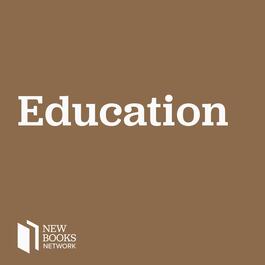
New Books in Education
This podcast is a channel on the New Books Network. The New Books Network is an academic audio library dedicated to public education. In each episode you will hear scholars discuss their recently published research with another expert in their field. Discover our 150+ channels and browse our 28,000+ episodes on our website: newbooksnetwork.com Subscribe to our free weekly Substack newsletter to get informative, engaging content straight to your inbox: https://newbooksnetwork.substack.com/ Follow us on Instagram and Bluesky to learn about more our latest interviews: @newbooksnetwork Support our show by becoming a premium member! https://newbooksnetwork.supportingcast.fm/education
Show episodes

Aaron G. Fountain Jr., "High School Students Unite! Teen Activism, Education Reform, and FBI Surveillance in Postwar America" (UNC Press, 2025)
In High School Students Unite! Teen Activism, Education Reform, and FBI Surveillance in Postwar America (UNC Press, 2025), Aaron G. Fountain Jr. highlights the crucial impact of high school activists in the 1960s and 1970s. Mid-twentieth-century student activism is a pivotal chapter in American history. While college a

Ruby Oram, "Home Work: Gender, Child Labor, and Education for Girls in Urban America, 1870-1930" (U Chicago Press, 2025)
In Home Work: Gender, Child Labor, and Education for Girls in Urban America, 1870-1930 (U Chicago Press, 2025) historian Ruby Oram tells the story of how middle-class, white women reformers lobbied the state to implement various public education reforms to shape the lives of girls and women in industrial cities betwe

Scott D. Seligman, "The Great Christmas Boycott Of 1906: Antisemitism and the Battle Over Christianity in the Public Schools" (U Nebraska Press, 2025)
Today’s battles over Christianity in U.S. public schools have deep roots. In the nineteenth century, disputes were largely between Protestants and later-arriving Catholics, but in 1905 Jews entered the conflict in a dramatic way. That Christmas, Frank Harding, a Presbyterian principal in Brooklyn, urged his Jewish stud

Amanda Nichols Hess, "Information Literacy and Critical Thinking: Using Perspective Transformation to Break Information Bubbles" (ALA, 2025)
Higher education is about transformation: research shows that the most well-prepared graduates are those who have experienced changes in how they think about and experience the world around them. Combined with flexible information-seeking and evaluation skills, learning ways to break information bubbles is essential fo
Among the most common challenges on college campuses today is figuring out how to navigate our politically charged culture and engage productively with opposing viewpoints. In Try to Love the Questions: From Debate to Dialogue in Classrooms and Life (Princeton UP, 2024), Lara Schwartz introduces the fundamental princi

Carlo Rotella, "What Can I Get Out of This?: Teaching and Learning in a Classroom Full of Skeptics" (U California Press, 2025)
I’m excited to talk to Carlo Rotella today. Carlo is Professor of English at Boston College. His books include The World Is Always Coming to an End: Pulling Together and Apart in a Chicago Neighborhood (University of Chicago Press, 2019); Playing in Time: Essays, Profiles, and Other True Stories (University of Chicago




